Produci, Consuma, Crepa
(Produce, Consume, Die)
February 2022
This was a publication about the idea of consumerism and the concept of copy
and paste, looking at it from various angles.
The reader is introduced to the concept of “Produce, consume and die”: the mantra of the capitalist economy and a phrase that has become famous in the Italian counter-culture.
The text and image narrative is not necessarily meant to express a criticism nor a particular point of view, but rather an exploration of the consumerist and capitalist society with an excursus from the 1980s to the present day.
The reader is introduced to the concept of “Produce, consume and die”: the mantra of the capitalist economy and a phrase that has become famous in the Italian counter-culture.
The text and image narrative is not necessarily meant to express a criticism nor a particular point of view, but rather an exploration of the consumerist and capitalist society with an excursus from the 1980s to the present day.

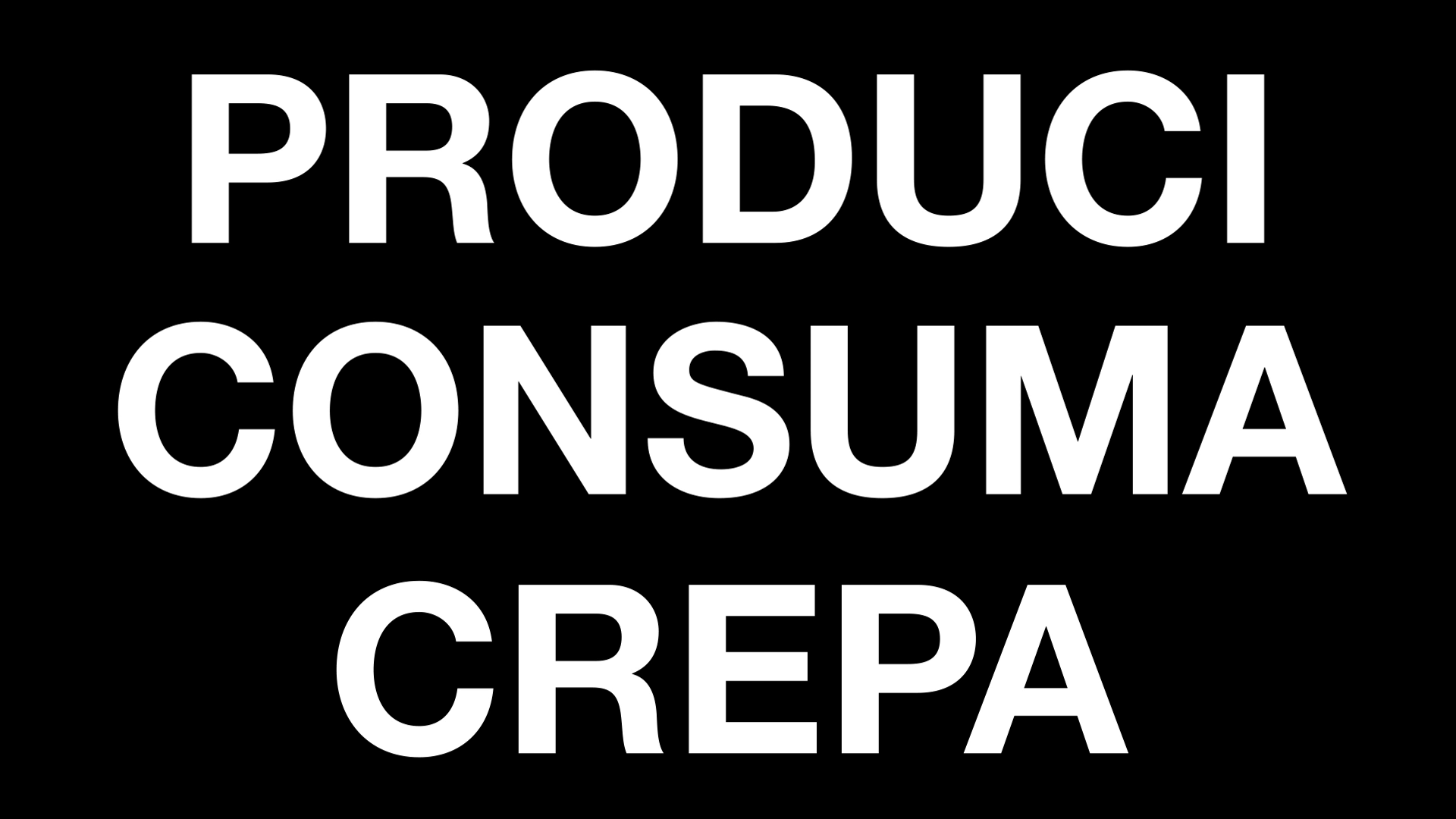




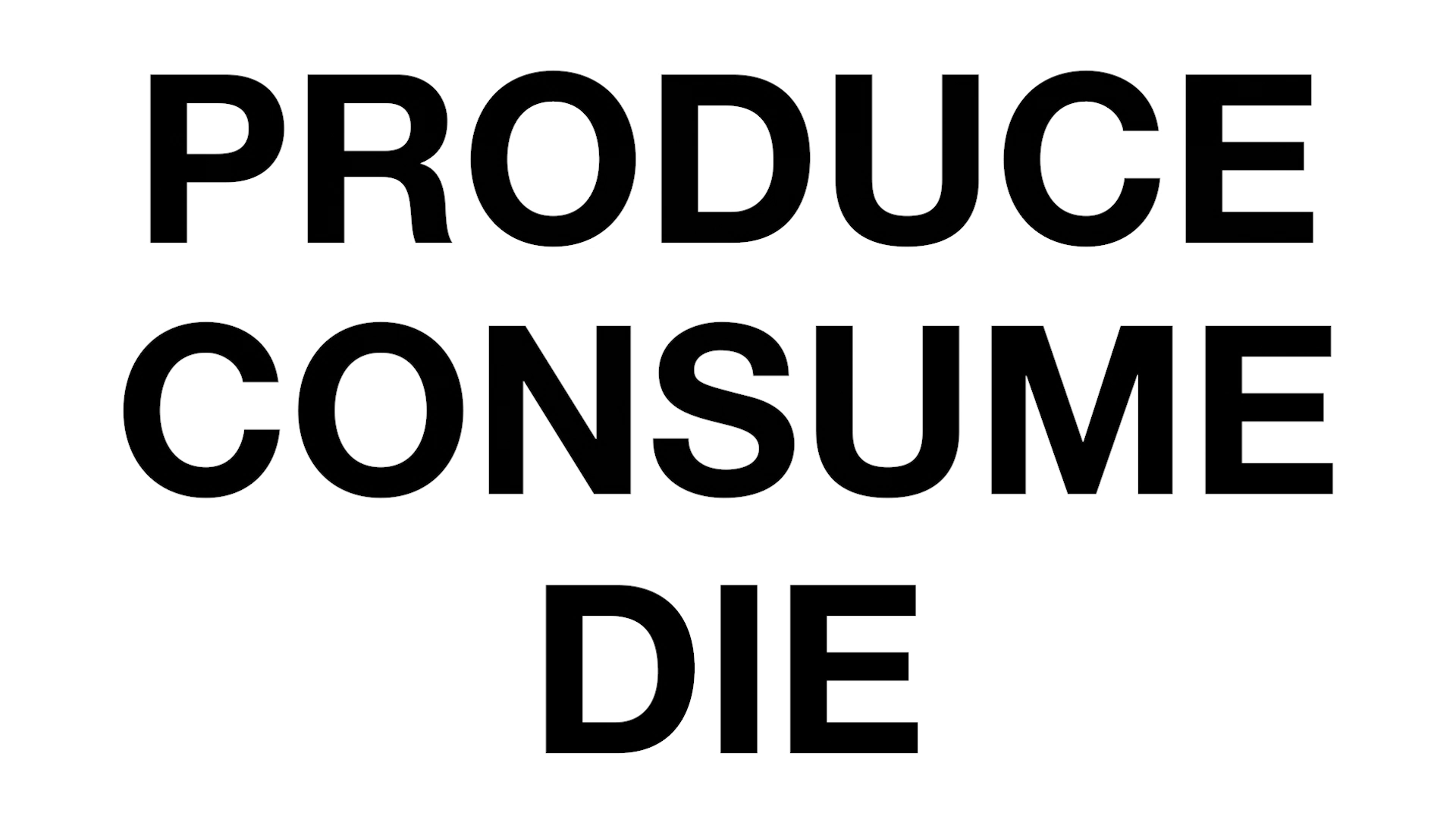

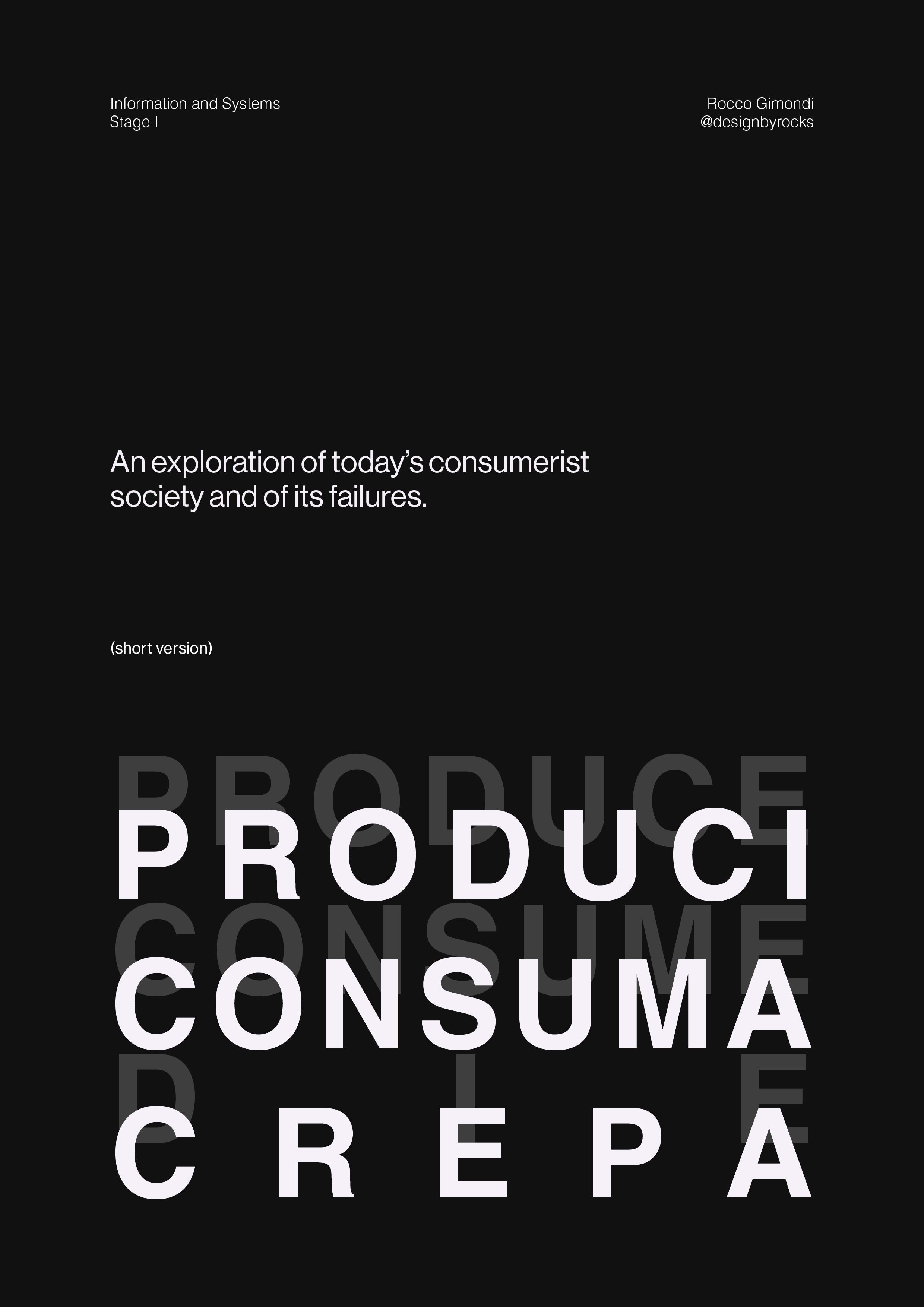

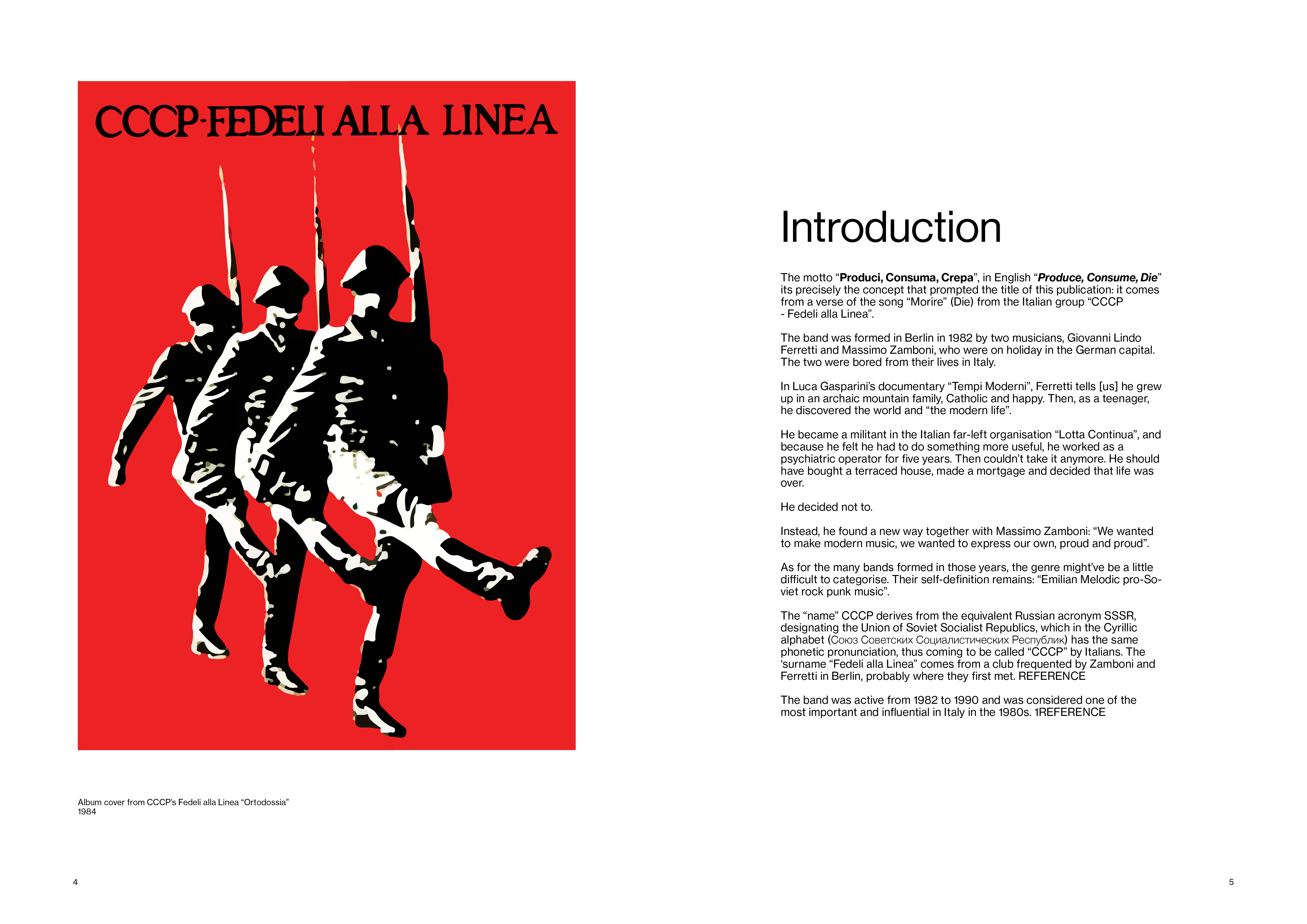

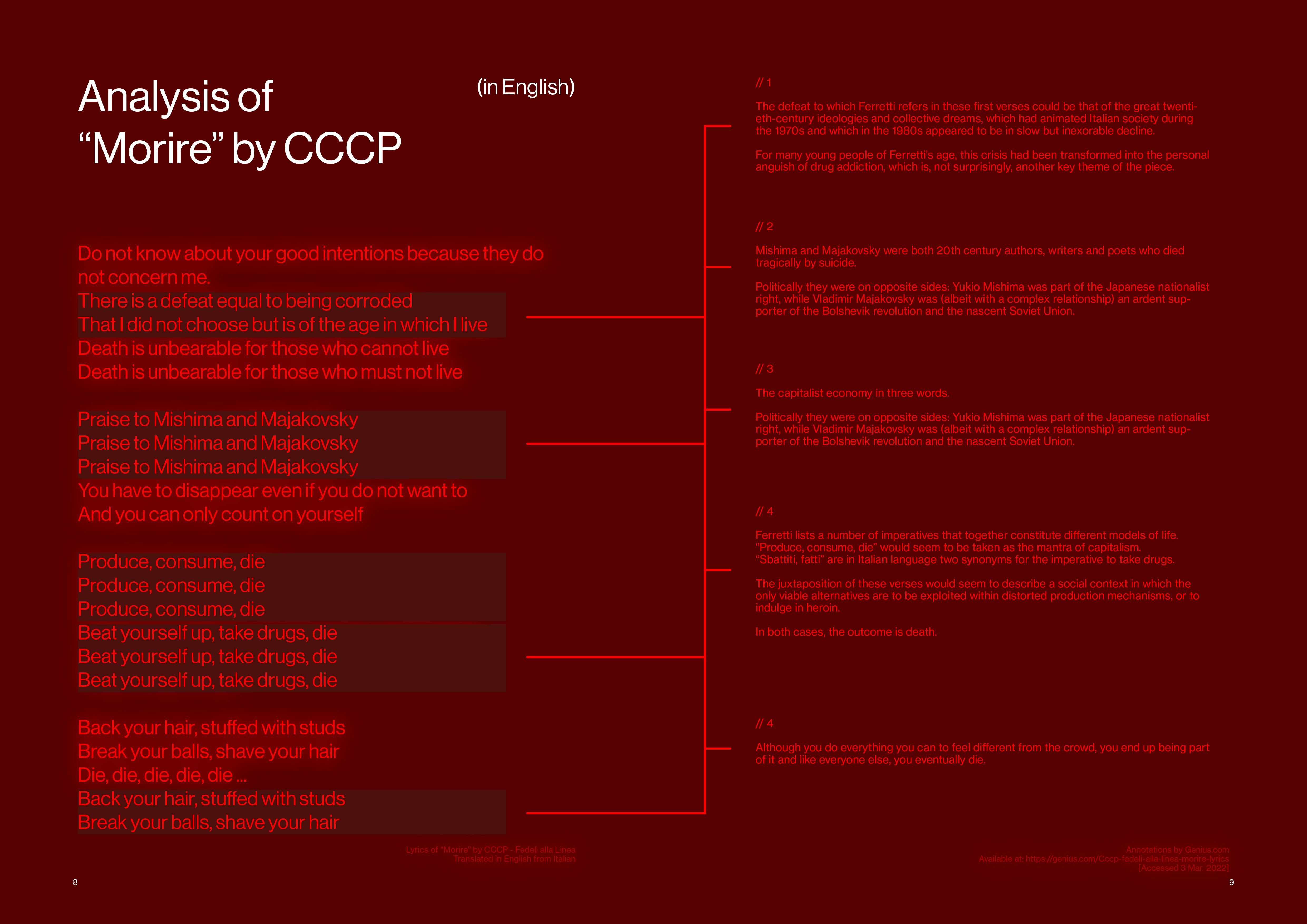
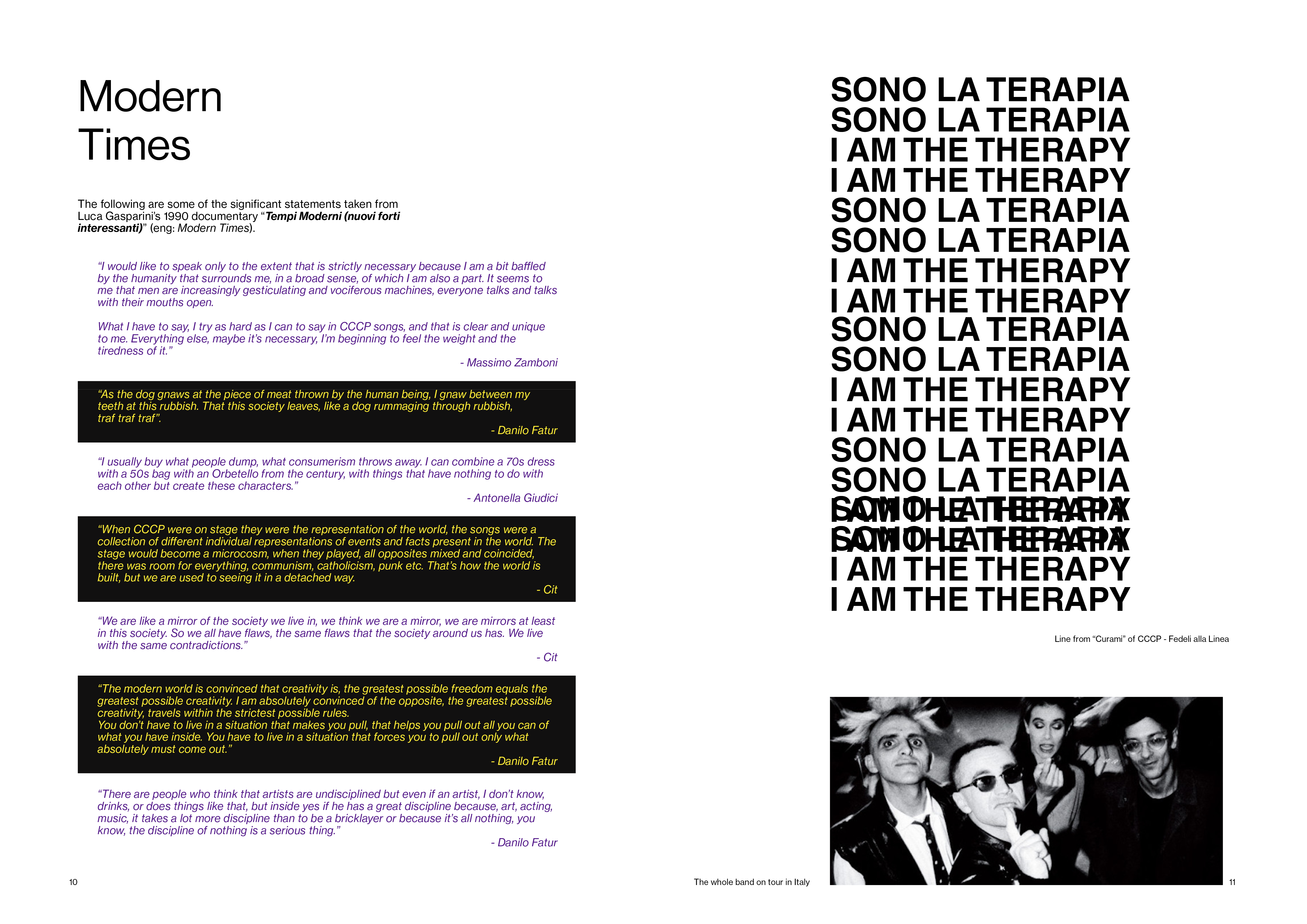


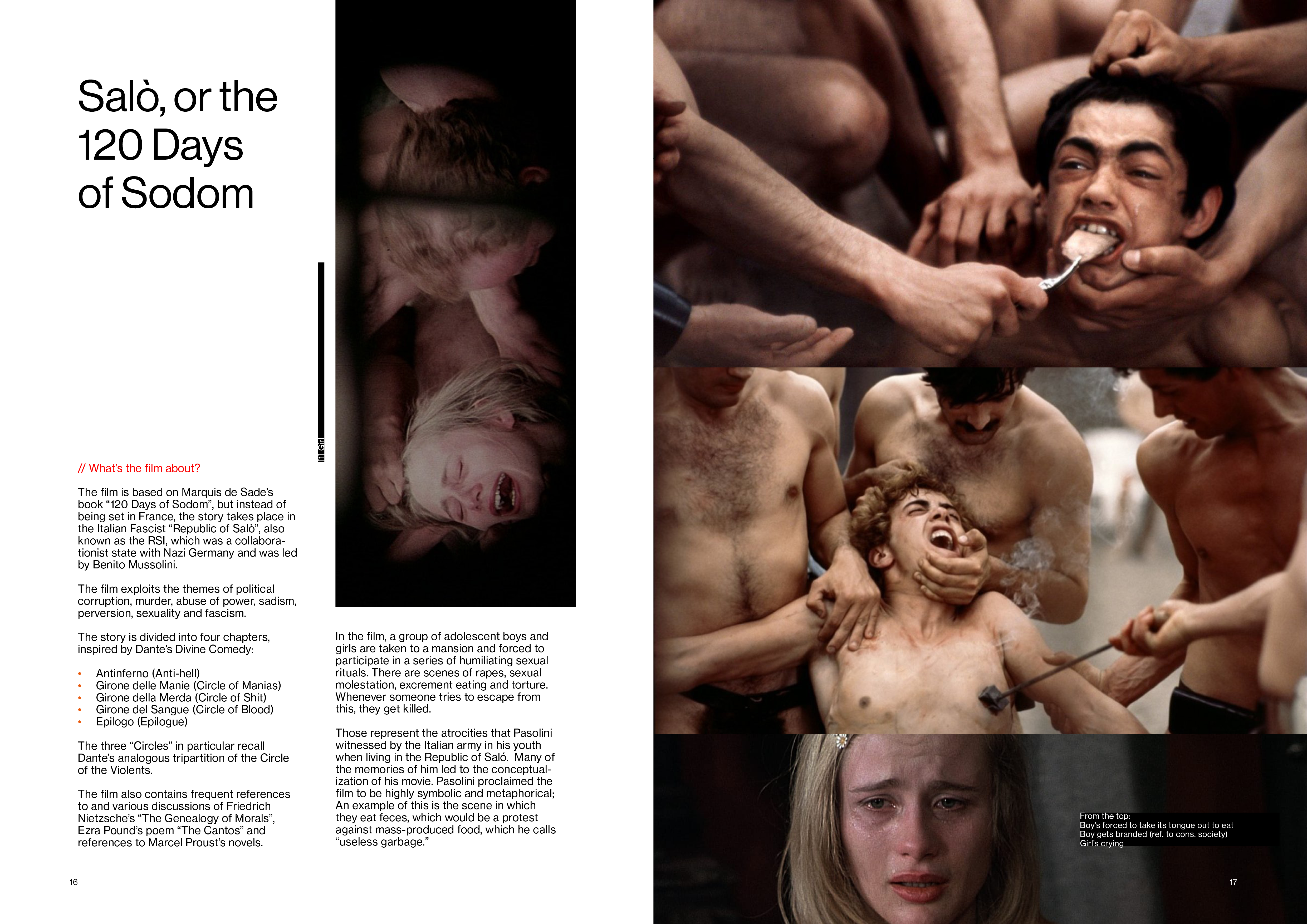
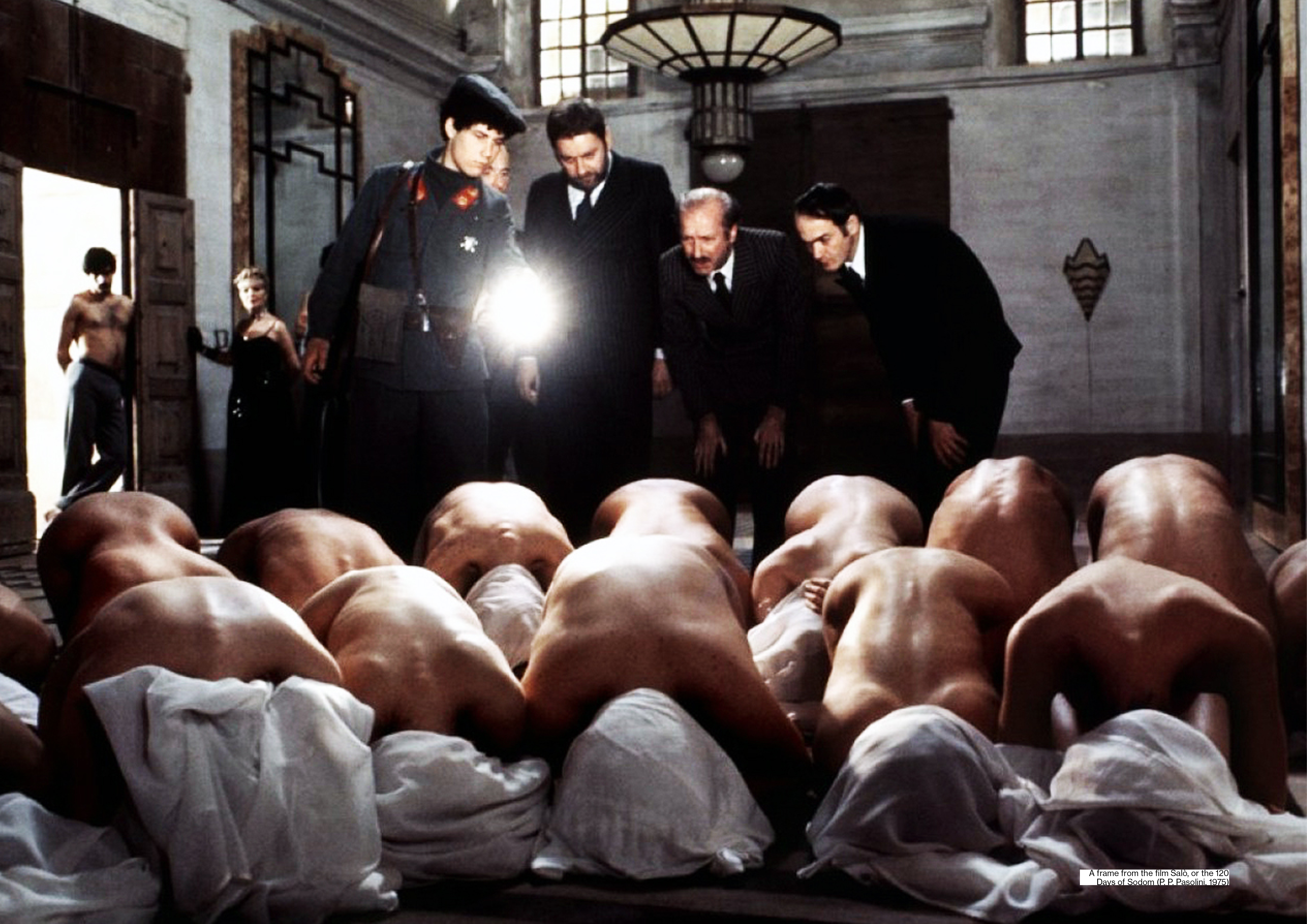

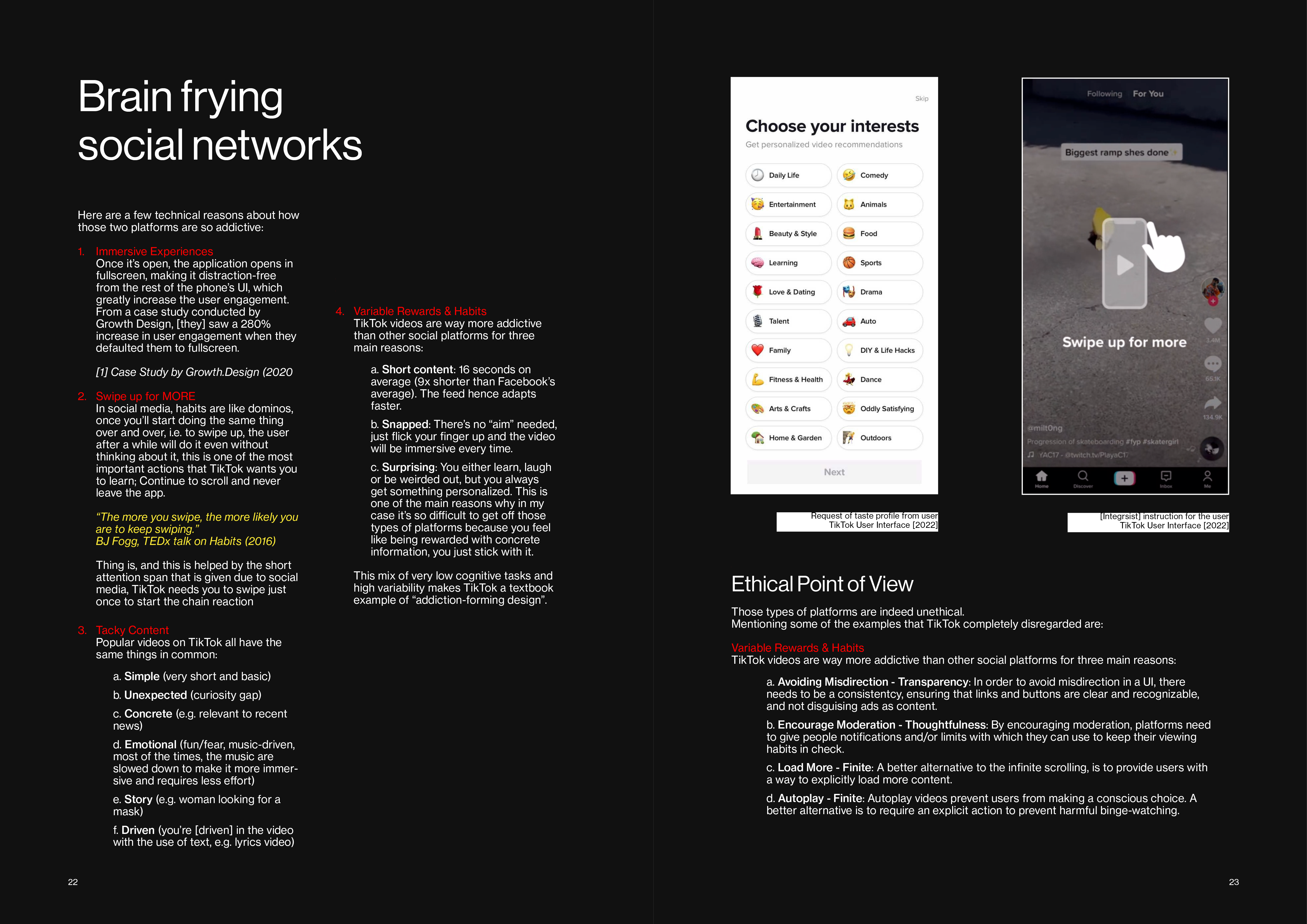
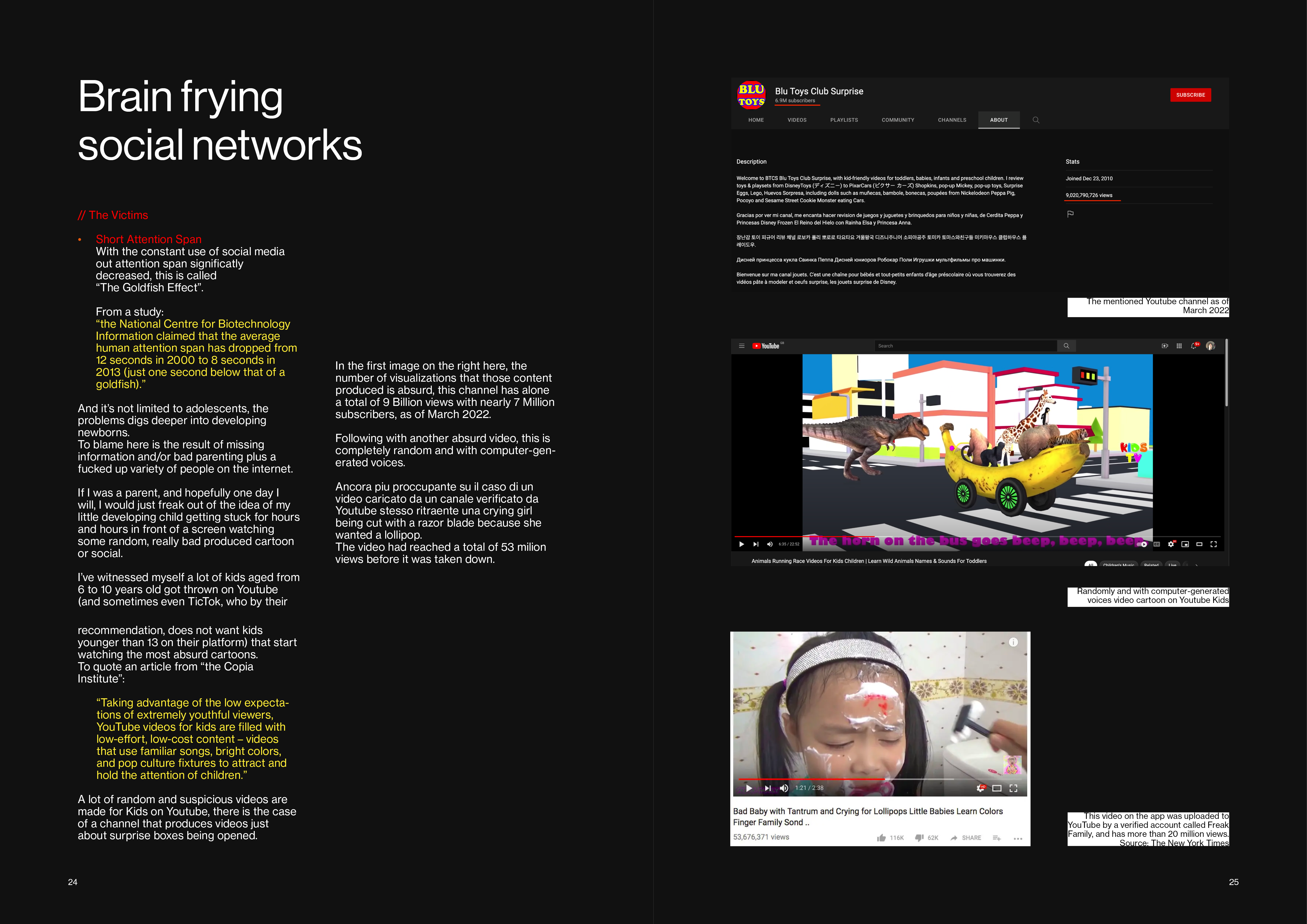


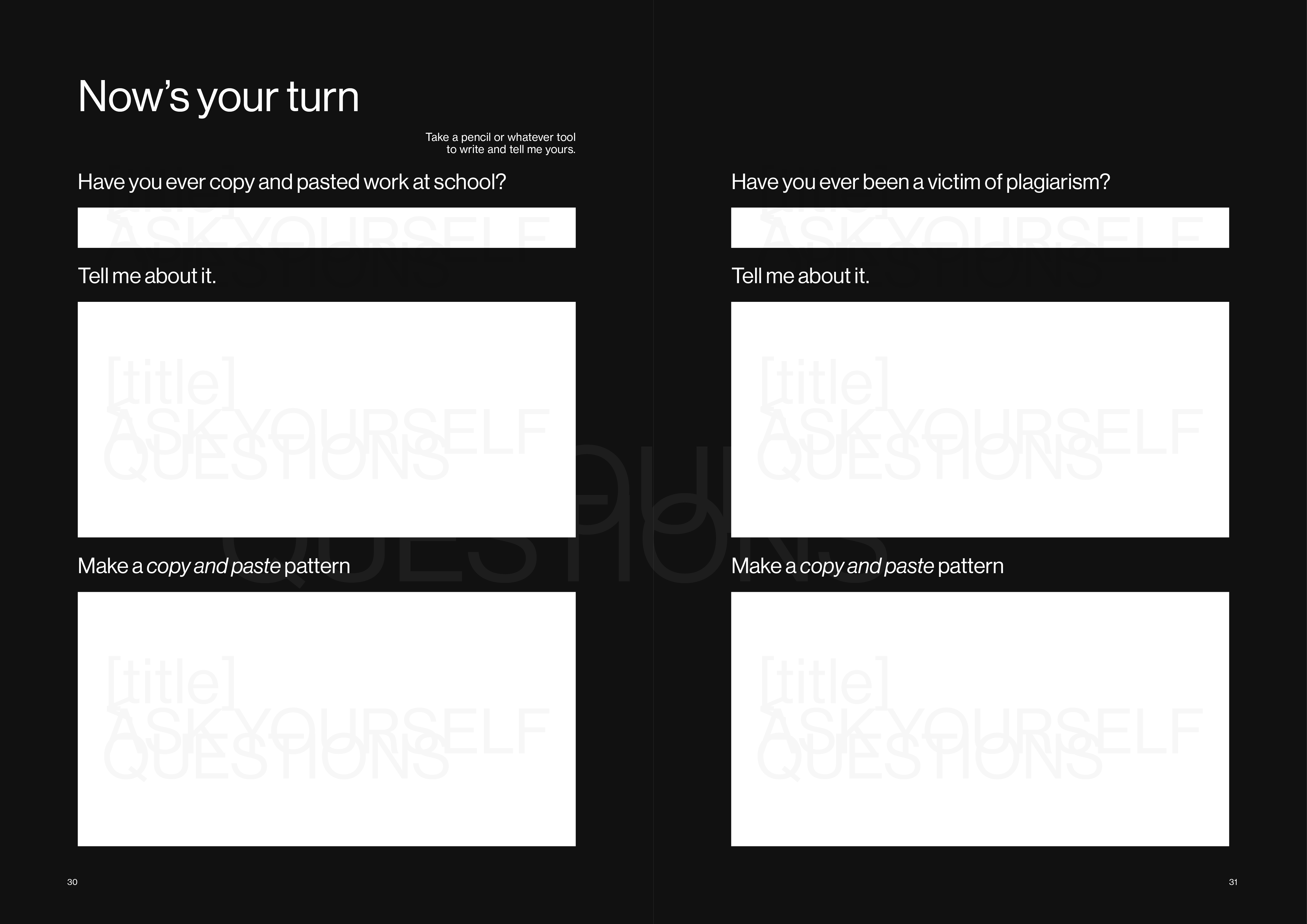

Final Outcome / Publication
Inspired by the song “Morire” by CCCP. They were an Italian rock band formed in 1982 that made “Emilian Melodic pro-Soviet rock punk” music; from that song, I took the verse that sings “Produce, Consume, Die”, which later became the title of the publication.
From there, I researched Pier Paolo Pasolini’s visions and ideas on consumerism and power. I made this connection then onto a monologue by Gian Maria Volonté about exploited workers, strikes and unions in the film “The Working Class Goes to Heaven”, all themes that related to a consumerist society.
Wanting to make a comparison with the present to make the publication deal with more contemporary issues and also for a personal motivation that is to explain the damage that today’s social networks in 2022 create on us, supported by studies and statistics.
Brief
Copy and Paste was the brief for this platform.
It is a concept that has been “shared, riffed, culled, reused, recycled, swiped, stolen, quoted, lifted, duplicated, gifted, appropriated, mimicked, pirated, sampled, remixed, cited, for as long as humans have existed”.
Divided into five weeks, we dealt with different topics related to the concept of copy & paste. Over a series of workshops, we created our final piece of work and exposed it in an Open-Studio installation.
It was an open brief. We needed to answer the question, “How we managed and positioned ourselves, work and practice in an expanding digital and social media world”, I responded with a publication exploring the failures of the consumerist society and debating its issues.

Copyright symbol, Herbert Putnam, 1906
In an era that was getting more and more governed by machines and that indeed has become so, this concept reflected well on the factories based mainly on the use of assembly-line technology, the workers who later made big strikes in the famous “Sessantotto“, were used and abused in this kind of society, the worker, the individual who has been assigned a task, has to execute it without any fuss, the same and identical task over and over.
As if it were a copy and paste.
Based on Gian Maria Voltere’s monologue in “La classe operaia va in paradiso”, the film was the winner of the Grand Prix for Best Film at the 1972 Cannes Film Festival. It is about workers who are treated almost like slaves even risking their lives, with unbearable work rhythms, just to be able to earn enough to afford a car and other consumer goods.
As if it were a copy and paste.
Based on Gian Maria Voltere’s monologue in “La classe operaia va in paradiso”, the film was the winner of the Grand Prix for Best Film at the 1972 Cannes Film Festival. It is about workers who are treated almost like slaves even risking their lives, with unbearable work rhythms, just to be able to earn enough to afford a car and other consumer goods.
The following are some of the significant statements taken from Luca Gasparini’s 1990 documentary “Tempi Moderni (nuovi forti interessanti)” (eng: Modern Times).
“Values have fallen and they have been replaced by others.”
Pasolini in the documentary talks about values, values that the consumerist society successfully imposes. He argues that there’s a depauperation of individuality which is disguised through its valorization.
And he hated the power of his day, of his today, he argues that everyone hated it.
This society would get power through the manipulation of the bodies, it manipulates them by transforming their consciousness, in horrible ways, by establishing new values that are alienating and false. The values of consumption.
Pasolini in the documentary talks about values, values that the consumerist society successfully imposes. He argues that there’s a depauperation of individuality which is disguised through its valorization.
And he hated the power of his day, of his today, he argues that everyone hated it.
This society would get power through the manipulation of the bodies, it manipulates them by transforming their consciousness, in horrible ways, by establishing new values that are alienating and false. The values of consumption.
